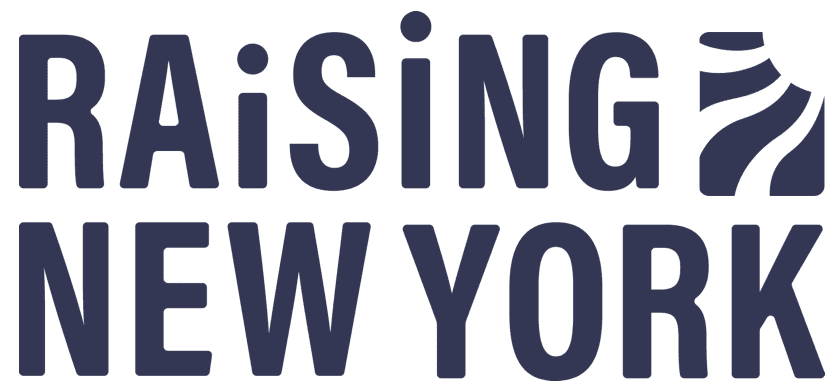Submitted to NYS Department of Taxation & Finance
2023 Joint Budget Hearing: Taxes
February 9, 2023
Thank you for the opportunity to submit testimony on the 2023-24 New York State Executive Budget. The Education Trust–New York is a statewide non-profit organization dedicated to educational equity. We work to attain educational justice through research, policy, and advocacy that results in all students – especially those who are from low-income backgrounds or students of color – achieving at high levels from early childhood through college completion.
New Yorkers continue to feel the economic burdens of the pandemic, particularly for young children and families of color, who are more likely to live in poverty.
There are more than four million children residing in New York State. Nearly one-in-five are experiencing poverty and about 40% live in low-income (below 200% of the federal poverty level) households. Children in Black, Latinx, and multi-racial families experience poverty at much higher rates than non-Hispanic, White children, the result of systemic and ongoing racism in housing, education, employment, and other systems.
In early 2022 New York enacted landmark legislation, the New York State Child Poverty Reduction Act, committing New York State to cutting child poverty in half in a decade. The Act had near-unanimous, bipartisan support from upstate and downstate, rural, urban, and suburban legislators and constituents. It is imperative that New York take meaningful steps this year to make good on its promise to New York children.
Background about the Empire State Child Credit
Enacted in 2006, New York State’s Empire State Child Credit provides eligible families up to $330 annually per “qualified” child (children ages 4-16). The credit begins to phase in at $3,000 of income. Eligible tax-filers are families with income up to $110,000 for a joint tax return, $75,000 for a single tax return and $55,000 for a married individual filing a separate tax return, with a gradual phase out. Nearly 1.36 million families received the credit for tax year 2019 at an average credit of $440. The cost associated with the ESCC in 2019 was $612.9 million.
It is estimated it would cost the State $270 million to $320 million to expand the ESCC to all children, fully-refundable, with no phase-in.
Government policy can make a real and immediate difference in the lives of children and families who are struggling to make ends meet. Pandemic-era federal supports confirmed that it is possible to quickly and sharply cut child poverty and boost family economic security. The most dramatic example was the temporary pandemic expansion of the Federal Child Tax Credit in 2021, which contributed to a 46% decline in child poverty nationwide. Unfortunately, the expanded federal tax credit, which brought regular monthly payments to families for the second half of 2021, has ended. For many of New York’s poorest families, the end of the expanded credit means they will receive no federal or state child tax credit for 2022. And, as noted above, for nearly all New York families, they will receive significantly smaller tax credits this year than last.
Summary of Recommendations
In the 2023-24 budget, we urge New York to strengthen and expand its refundable tax credits, similar to the federal enhanced child credit, in order to have the greatest impact on child poverty by:
- Including a robust State child credit for children under age four, a group currently excluded from New York’s Empire State Child Credit (ESCC)- The first three years of life are a critical time of growth and development, as such young children are incredibly vulnerable to the damaging effects of food insecurity, housing insecurity, and other harmful conditions associated with poverty, which disproportionately harm Black children, children of color, and children who are undocumented, more than any other group. Infants and toddlers deserve the resources and supports needed to become healthy, productive, and successful adults.
- Restructuring the ESCC and NYS Earned Income Tax Credit (EITC) so the highest credit goes to the lowest-income families, by ending regressive minimum income requirements and phase-ins- New York is the only state with an income phase-in, meaning that families earning below $9,667, and who often have the greatest need, are currently ineligible to receive the full ESCC amount.
- Increasing the credit amount of the ESCC and EITC to provide families meaningful support- Refundable tax credits like the Earned Income Tax Credit (EITC) can encourage work because the credit amount rises as earnings rise to a maximum level, and then phases out slowly as a worker’s earnings increase. The EITC also plays an outsized role in reducing child poverty in New York, constituting the largest state tax credit low income families receive. In tax year 2020, more than 1,240,000 New York State taxpayers filed EITC claims. The average credit for a family with two children was $964. Without action in this year’s budget, in FY 2024, the credit with drop back to 30% of the federal EITC. New York should expand and strengthen the state EITC by permanently increasing the percentage of the federal credit paid to families from 30% to 45%; and expanding the credit for young adults without children (ages 18 through 24) who are currently ineligible for either the federal or state credit.
- Making the EITC available to as many immigrant families as possible by adjusting filing requirements so more hard-working immigrant New Yorkers can file for the state EITC.
- Paying credits monthly or quarterly to smooth-out income and help families keep up with bills.
Combine the state CTC and EITC to create a strong, streamlined Working Families Tax Credit
The Working Families Tax Credit, Senate Bill 277 (Gounardes), proposes combining and strengthening New York’s ESCC and EITC. For individual New Yorkers and families currently eligible for the ESCC, EITC, or both, the combined credit they would receive from the WFTC would be greater, or equal to the sum of the two credits. For the lowest income, and many immigrant New Yorkers, the credit amount would be significantly greater under the WFTC.
The WFTC builds upon the strengths of New York’s ESCC and EITC, and corrects their shortcomings. Eligible families with children would receive a WFTC equal to or greater than the current EITC credit plus ESCC credits for all children in the household including young children under age four. It would eliminate the phase-ins currently in place for both credits to allow families with the lowest incomes to receive the full credit amount, and would be available to immigrant tax-filers with Individual Tax Identification Numbers (ITIN) in the same manner as filers with Social Security Numbers (SSNs). (This is currently the case with the ESCC, but not with the EITC.) Finally, the WFTC would be paid out in four increments throughout the year.
It is estimated that the NYS WFTC would result in a 13.4% reduction in children under the age of 18 living in poverty, with a 19.6% reduction for those under 18 living in deep poverty. (Source: Analysis conducted by the Center on Poverty & Social Policy at Columbia University)
A recovery that centers children, families, and communities
As New York implements the Child Poverty Reduction Act’s commitment to halving child poverty in a decade, and turns the corner to pandemic recovery, we urge the Legislature and the Governor to pass a 2023-24 Budget that centers children and families; prioritizes communities hit hardest by the pandemic; and uses this moment of rebuilding as an opportunity to support a greater number of children and families, especially those who are more vulnerable and marginalized.
Please feel free to contact the Executive Director of The Education Trust—NY, Dr. Dia Bryant, at [email protected] if you have any questions or would like to discuss this testimony further. Thank you.

